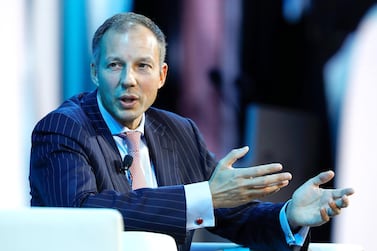Co-operation between the US, the world's largest oil producer, and Opec is "not on the cards", a senior US government official has said.
"[The US aims to] leverage energy resource abundance to catalyse new regional co-operation for shared development and growth on the basis of emerging international energy markets," Francis Fannon, US assistant secretary for the Bureau of Energy Resources at the US State Department told UAE state news agency Wam.
The US emerged as the world's biggest oil producer as independent producers along its shale basins boosted their output on the back of efficiencies generated during the three-year oil price slump that began in mid-2014. Overall US production is expected to hit a record 13 million barrels per day next month, according to the US Energy Information Administration.
US policymakers have previously sought to penalise Opec's 14-member group of oil-exporting countries for what they see as its role as a cartel, pushing for higher oil prices that ultimately hurt the US consumer. The No Oil Producing and Exporting Cartels Act, which was introduced 16 times in the US Congress, looks to remove legal immunity from oil-exporting countries that participate in limiting production of crude in order to control prices and influence trade.
The US will also press on with its campaign of "maximum pressure" on Iranian oil exports with the aim to squeeze the country's revenues, Mr Fannon said in Abu Dhabi yesterday.
Since walking away from the 2015 Joint Comprehensive Plan of Action last year, the US has been building pressure to push Iranian crude exports down to zero. The administration imposed sanctions on Iran in November last year, restricting its sale of oil and condensate. The US increased pressure on Tehran this May, cancelling waivers that were granted to eight of Iran's significant oil buyers including India, China, Turkey and Japan, among others.
“We’ve been able to advance a maximum pressure campaign to take significant barrels off the global markets without any harmful impact to the global economy. It’s an achievement that no one thought was possible. It was never done before," he said.








